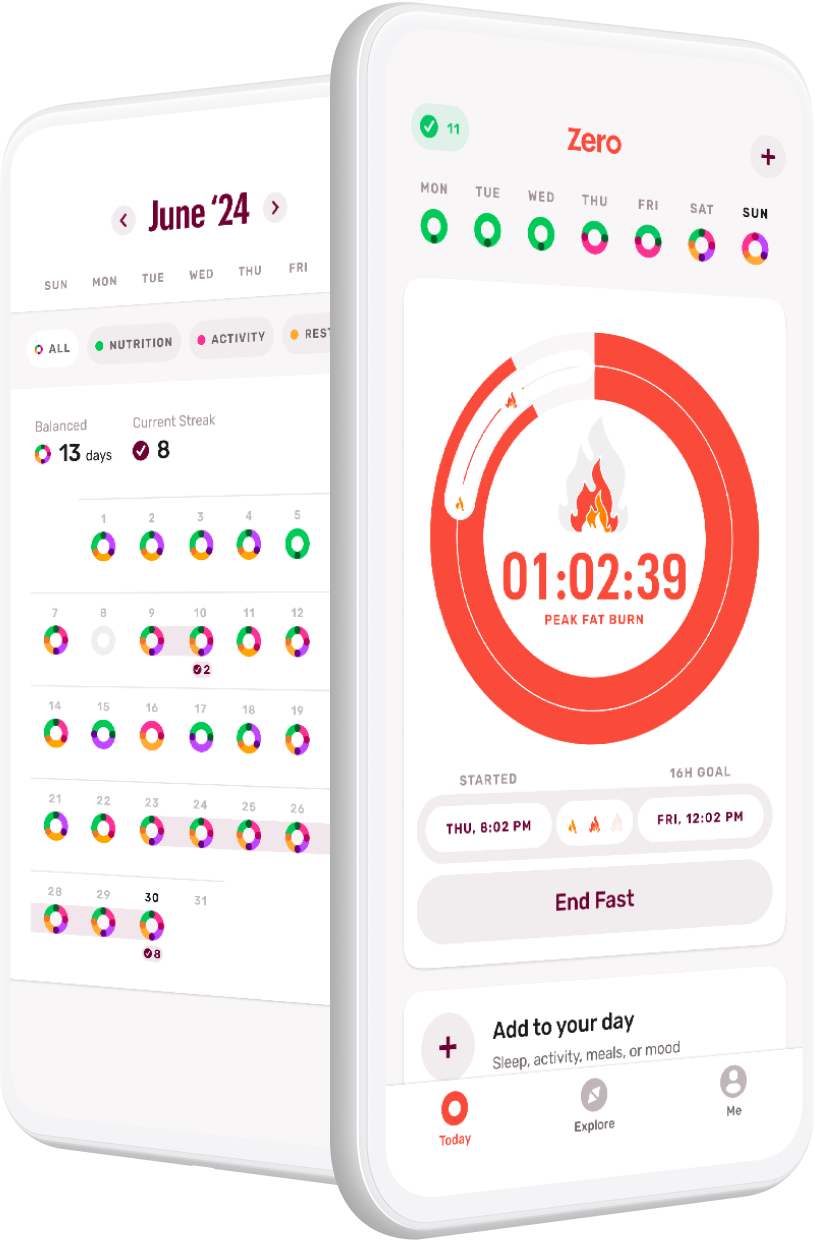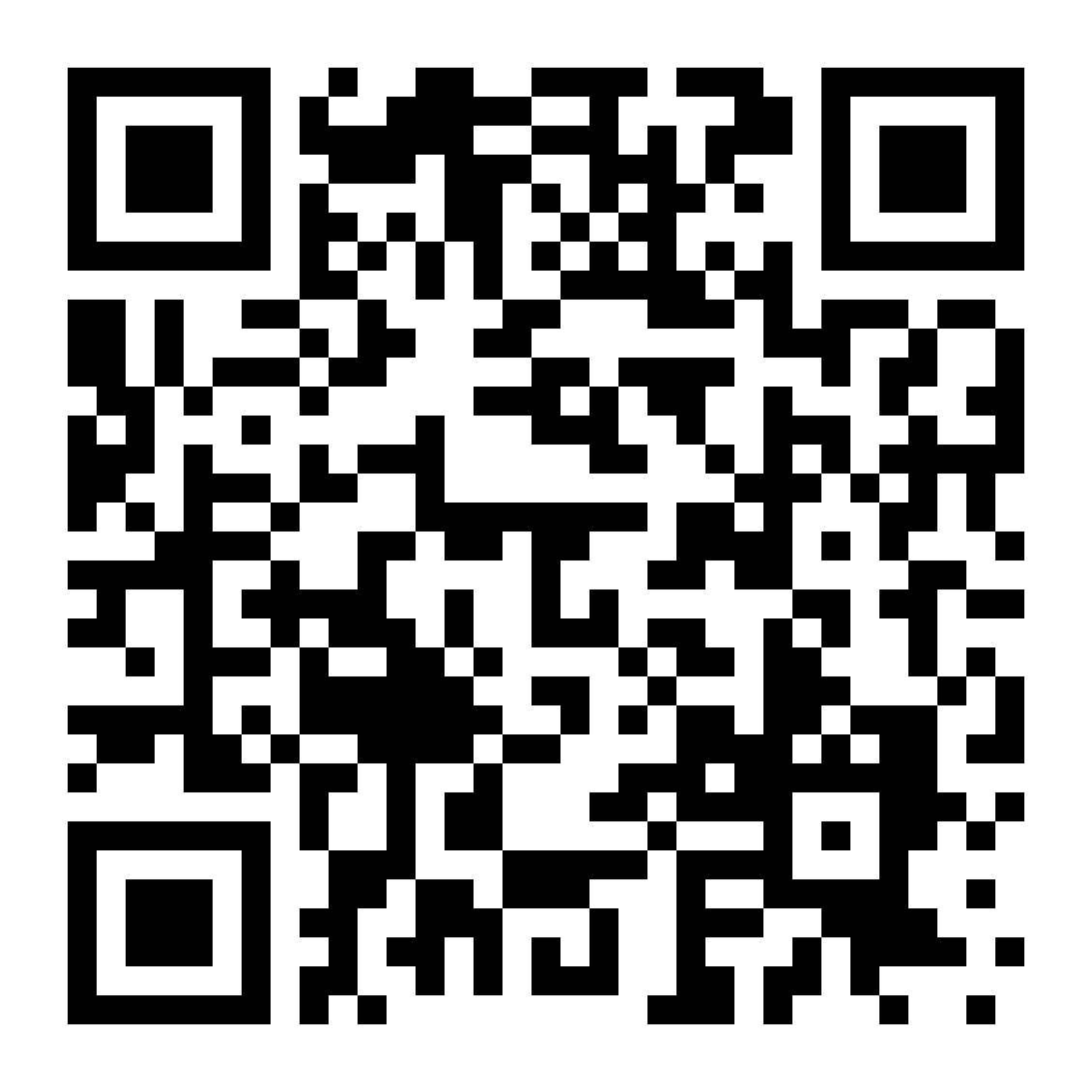Written and medically reviewed by Nicole Grant, RD
Maybe your weight has fluctuated for years, or maybe you’re noticing a few extra pounds that have crept on for the first time. No matter where you are in your weight-loss journey, it’s crucial to find practical, sustainable methods you can use to lose weight and keep it off. This toolkit offers five essential practices to help you establish healthy habits and make significant strides towards your goals.
The Science Behind Weight Loss
While many traditional weight-loss plans would have you believe that losing weight comes down to a straightforward “calories in, calories out” equation, your body isn’t a calculator; calories matter, but they’re not the only factor. Healthy, sustainable weight loss is achieved by combining a variety of healthy behaviors. Eating nutritious food and being mindful of when you eat, moving your body regularly, getting restful sleep, and practicing restoration all contribute to your body’s ability to lose weight as well as maintain it.
Nutrition influences your weight via what and when you eat or don’t eat. The amount of calories, the impact food choices have on our hormones and how long we fast/feast for can all contribute to the number on the scale.
Movement — or exercise, if you prefer — burns calories, which contributes to weight loss. At the same time, movement can help you increase your lean body mass (i.e., muscle), as well. This further contributes to weight loss and metabolic health because muscle is metabolically active, meaning that it burns more calories at rest than fat.
Sleep factors into both losing and maintaining weight. Better subjective sleep quality has been associated with a 33% increase in weight loss success, and sleeping at least 7 hours per night is essential for maintaining health and preventing weight gain.
Finally, restorative activities such as meditation or journaling can help you manage your weight in two ways. First, it can help physically, by way of hormones. When chronically elevated, the stress hormone cortisol can lead to overconsuming food and gaining weight. Fortunately, restorative practices can reduce cortisol levels, promoting a more favorable environment for weight loss. Second, practicing restoration and reducing stress can translate to less emotional eating and a more positive body image, which studies have shown increase your chances of success with weight loss.
5 Essentials for Your Weight-Loss Toolkit
Nutrition, movement, sleep, and stress management are all essential components to healthy weight loss. The following toolkit will help you put these four Pillars of Health into action and improve your chances of long-term success.
#1. Cut Calories Without Counting
One of the main drivers of obesity is a positive energy balance (i.e., consuming more calories than you burn), likely stemming from the fact that most people don’t know how much they are consuming. A majority of Americans underestimate how many calories they consume each day by about 15–30%. For the average person aiming for 2,000 calories per day, this means eating an excess of up to 600 calories — that’s a quarter of a medium cheese pizza or three grande lattes!
Of course, counting calories is exhausting and unsustainable for most people — that’s why calorie-restrictive diets fail time and time again. The key is to find ways to constrain your caloric intake without feeling as though you’re depriving yourself of important social interactions and/or the foods you want most. One way to help spontaneously reduce your caloric intake is by fasting. By providing structure to when you start and stop eating, you may naturally eat less than you would if you were continuously eating from sunup to sundown.
Another simple solution is to focus on eating mostly whole, minimally processed foods, which can naturally help you reduce caloric intake. The DIETFITS clinical trial, published in the Journal of the American Medical Association, showed that with this approach, it doesn’t matter what types of foods you’re eating or how the macronutrients are distributed — as long as the foods you choose to eat are minimally processed, you are likely to find success on your weight-loss journey.
Finally, you can also burn more calories by simplifying your approach to physical activity. If hiring a trainer and following a detailed workout plan seem overwhelming, try paring down your activity goals to “just move.” Take a walk outside, play with your kids, or dance to your favorite song. Movement doesn’t need to be complicated to be effective.
#2. Set Strong Goals
Goal setting is a staple for achieving health and weight-loss goals. There are a variety of ways you can approach setting healthy goals; however, research shows that focusing your goals on intrinsic motivation, lifestyle changes that intersect with your identity, and self-monitoring yields particularly high rates of success.
Intrinsic motivation is essentially an internal driver of change. Compared to extrinsic motivators, like tangible rewards or praise from others, intrinsic motivation is heavily influenced by interest and enjoyment in a given activity, your perceived competence at the activity, the level of importance you place on the activity or goal, and any pressure or tension you feel from it. All of this means that in your pursuit of weight loss, you’ll want to build supportive habits that (1) you actually enjoy, (2) you are relatively good at, (3) provide you value, and (4) don’t add to (or maybe even relieve!) anxiety.
Identity-based goals that incorporate lifestyle shifts can help you lose weight, but even more importantly, they can make that weight loss sustainable. For example, if your goal is to eat more nutritious foods or exercise more regularly, you might shift to declaring “I am a healthy eater” or “I am a runner.” When you move from targeting an outcome (weight loss) to incorporating the journey towards that outcome (healthy eating, exercising) into your identity, you’ll be more inclined to take actions that reinforce that identity. (A healthy eater fills her plate with vegetables, and a runner doesn’t hit snooze and forgo that morning run!)
Finally, self-monitoring is an effective way to stay on course when challenges arise, particularly when you can see the progress you’ve made. Techniques such as journaling help reinforce commitment to your intended lifestyle change, and tools like the Zero Calendar help you to see your consistency over time. Do your best to make self-monitoring a habit, because research shows that the more often you track and report progress, the more likely you are to succeed.
#3. Arrange Your Environment for Success
Like it or not, your behaviors are largely driven by environmental cues. You can use this to your advantage by increasing the visibility of cues that prompt healthy behaviors and hiding cues that lead to less desirable outcomes.
For behaviors you want to reinforce, make the cue visible and the action easier to complete. If you would like to read before bed instead of watching TV, hide the remote and place your book atop your nightstand. If you’d like to work out first thing in the morning, lay your clothes out the night before. If you want to drink more water, keep a full water bottle on your desk.
Conversely, to stop cueing unwanted behaviors, remove those cues. To stop snacking on chips, store the bag of chips out of sight. If work emails are stressing you out before bed, turn off email notifications at the end of your normal work hours so your phone isn’t constantly buzzing.
#4. Plan Ahead
Planning and preparation is a tried-and-true strategy for forming any habit, and it’s especially helpful when it comes to food. Studies have shown that the more frequently participants meal planned, the more successful they were with their weight-loss efforts. Predetermining your meals helps increase your awareness of what and how much you are eating, and it also helps you avoid the “most convenient” choice, which often is substantially less nutritious than a homemade option.
Prepping your meals in advance can also create more space in your schedule. For example, condensing your meal prep to a couple days instead of starting from scratch for every meal can free up more time for exercise, sleep, and other restorative activities that ultimately support your weight-loss efforts.
Of course, planning ahead can help with forming other healthy habits, too. For example, setting a specific bedtime and morning alarm can help with consistently getting enough sleep. Likewise, scheduling breaks in your workday for exercise or meditation can help you prioritize those activities and prevent conflicts, such as meetings, from derailing your efforts to solidify these healthy habits.
#5. Create Accountability
Accountability is crucial to the success of any endeavor, weight loss included. Being accountable to yourself is important, and setting goals and tracking your progress are great ways to foster internal accountability. However, it’s extremely common to need some added, external accountability to stay on track. This can come from people, online communities, and even technology.
When you engage friends and family in healthy behaviors such as exercise or cooking healthy meals, you increase your chances of maintaining weight loss. If friends or family don’t live nearby, online communities and apps can provide similar forms of accountability, encouragement, and recognition of your successes. Zero, for instance, helps create accountability through tracking and goal-setting. When used consistently, apps to manage weight loss and healthy behaviors can help you maintain your health gains in the long term.
Conclusion
Losing weight requires forming healthy habits that encourage positive shifts in the way you eat, move, sleep, and restore. To form these habits and engrain them in your lifestyle, practice keeping things simple, setting goals, optimizing up your environment, planning ahead, and establishing accountability. With these tools in your toolkit, you can look forward to seeing results on your weight-loss journey.
- 4 Easy Tips to Burn Fat Faster - July 3, 2024
- Why Should We Care About Hormones? Fasting and Hormone Health - April 1, 2024
- Should You Consider a Continuous Glucose Monitor (CGM) If You’re Non-Diabetic? - March 18, 2024

